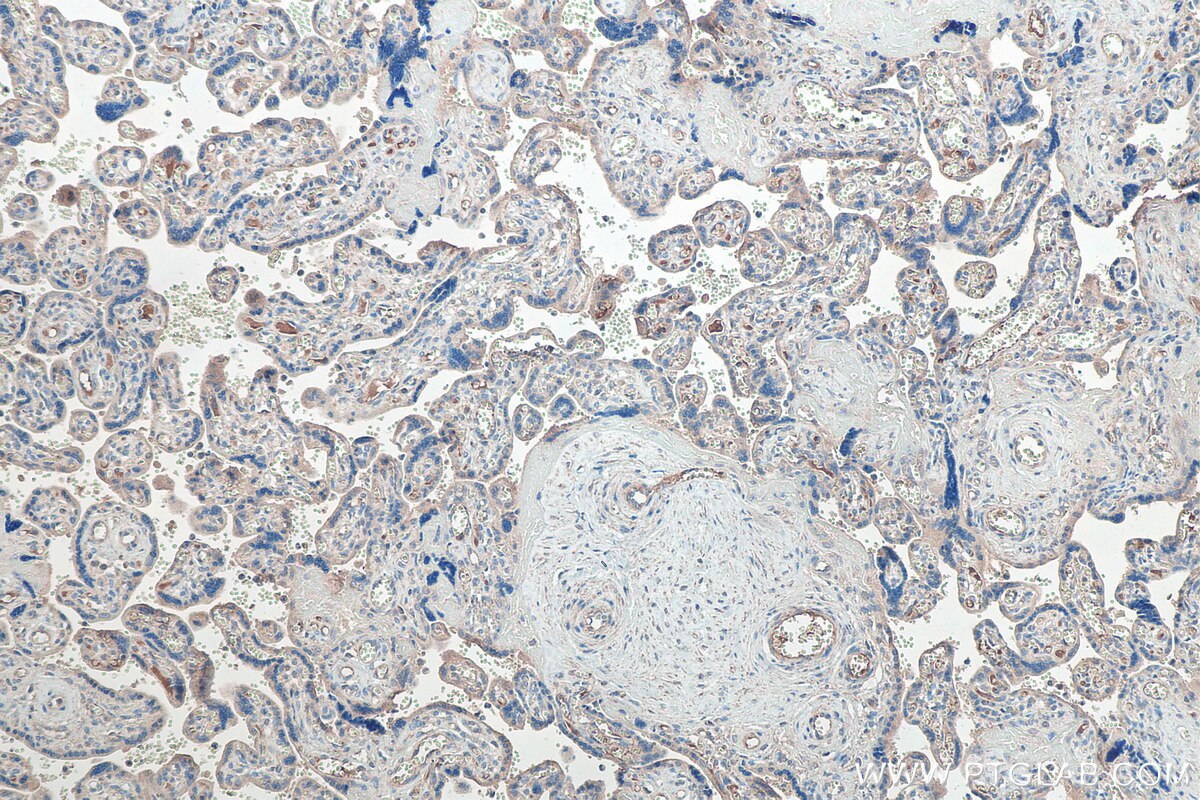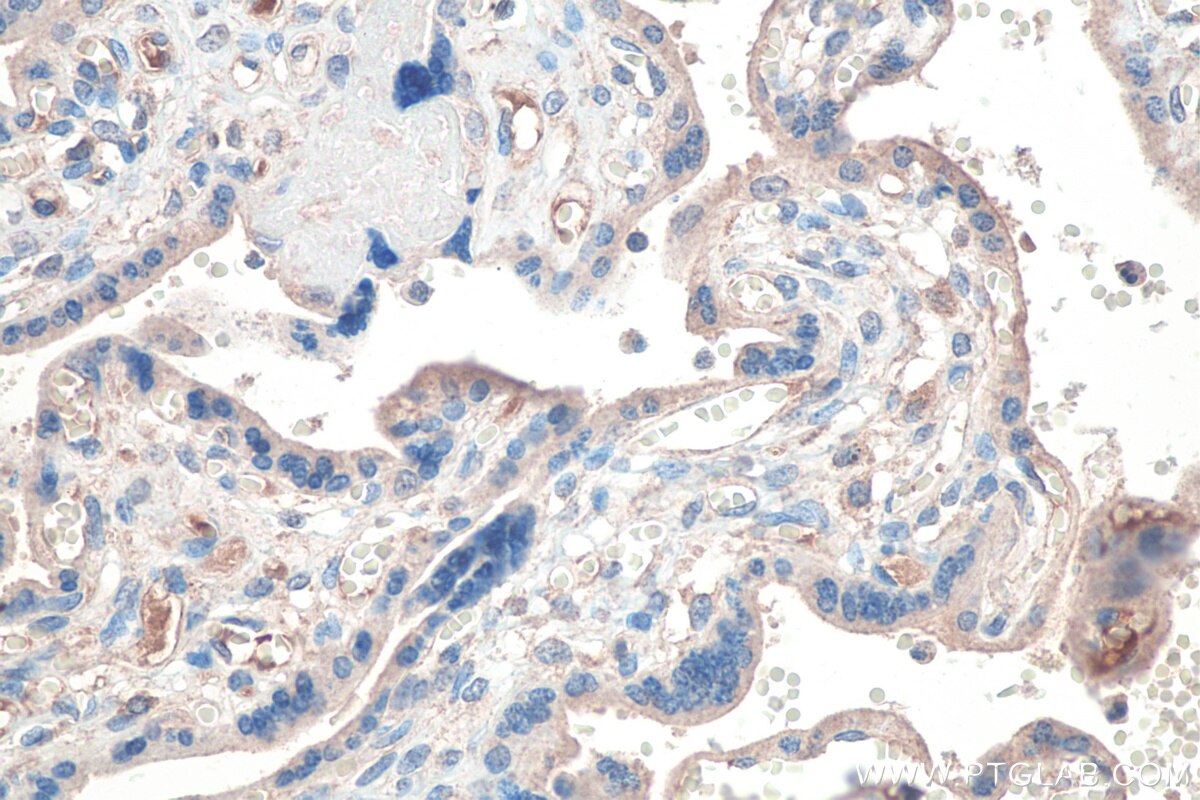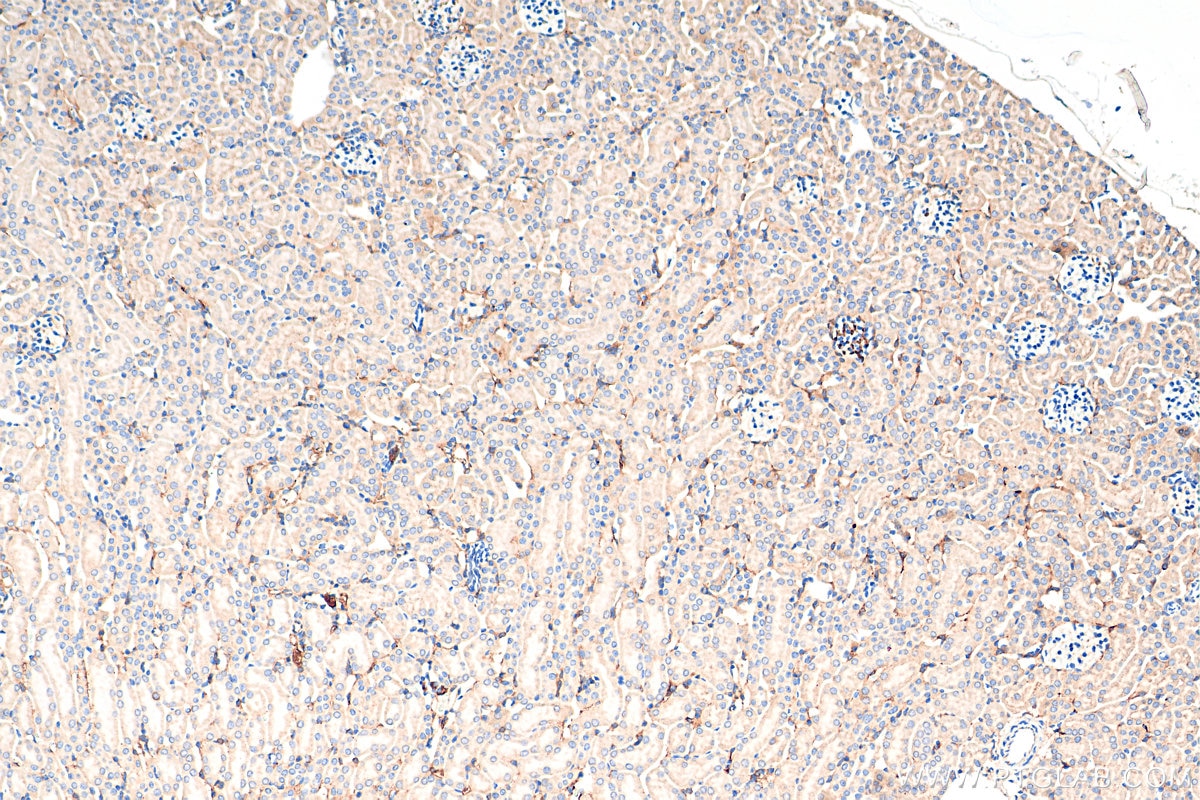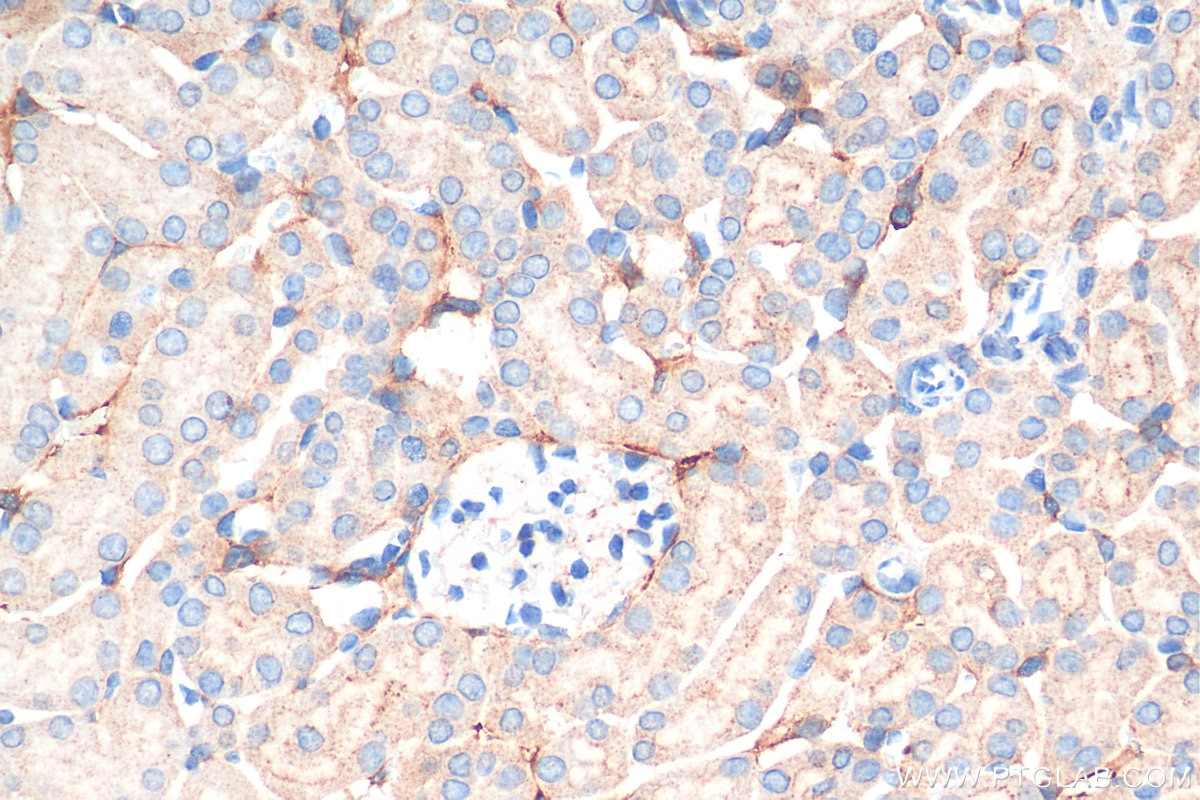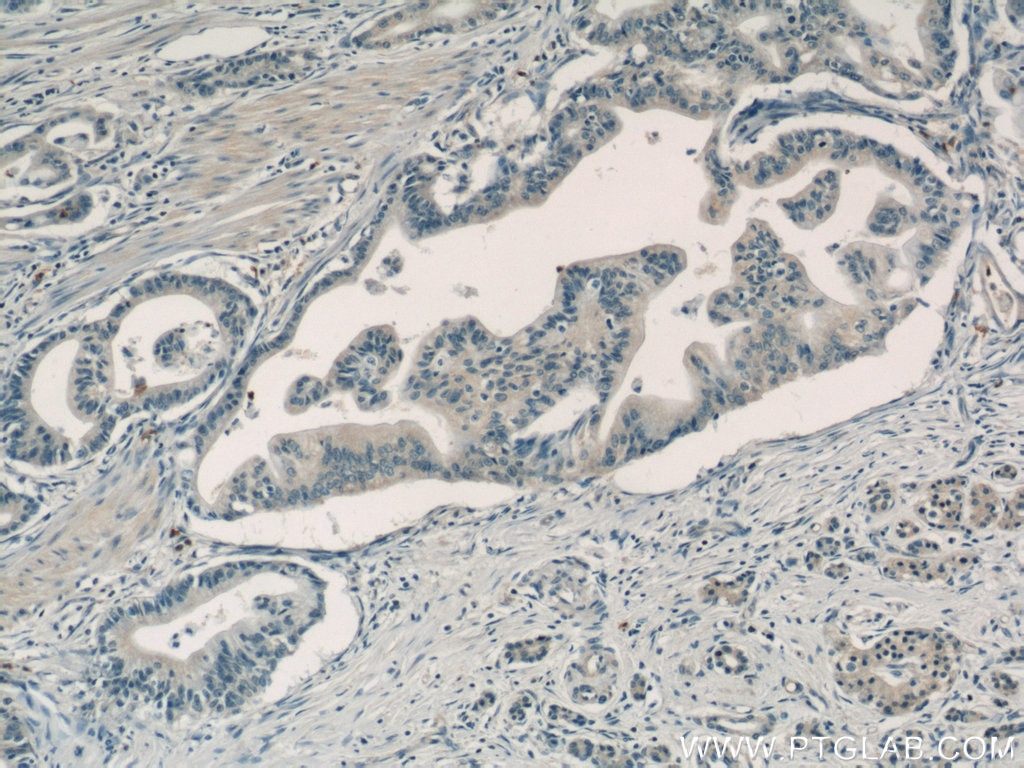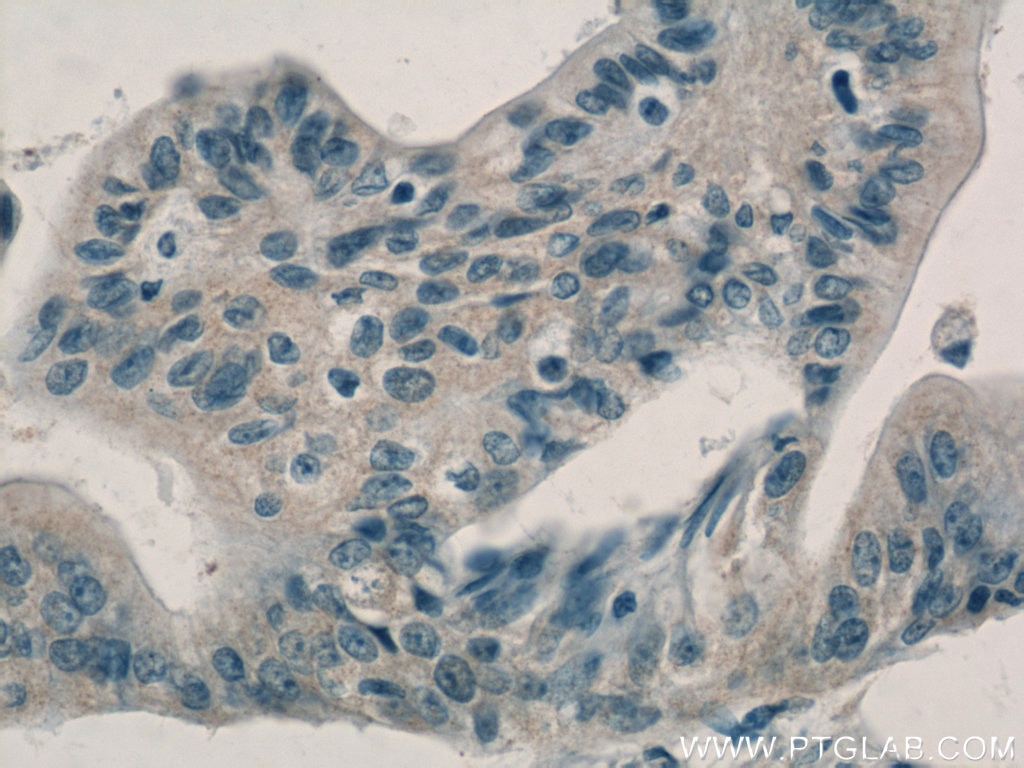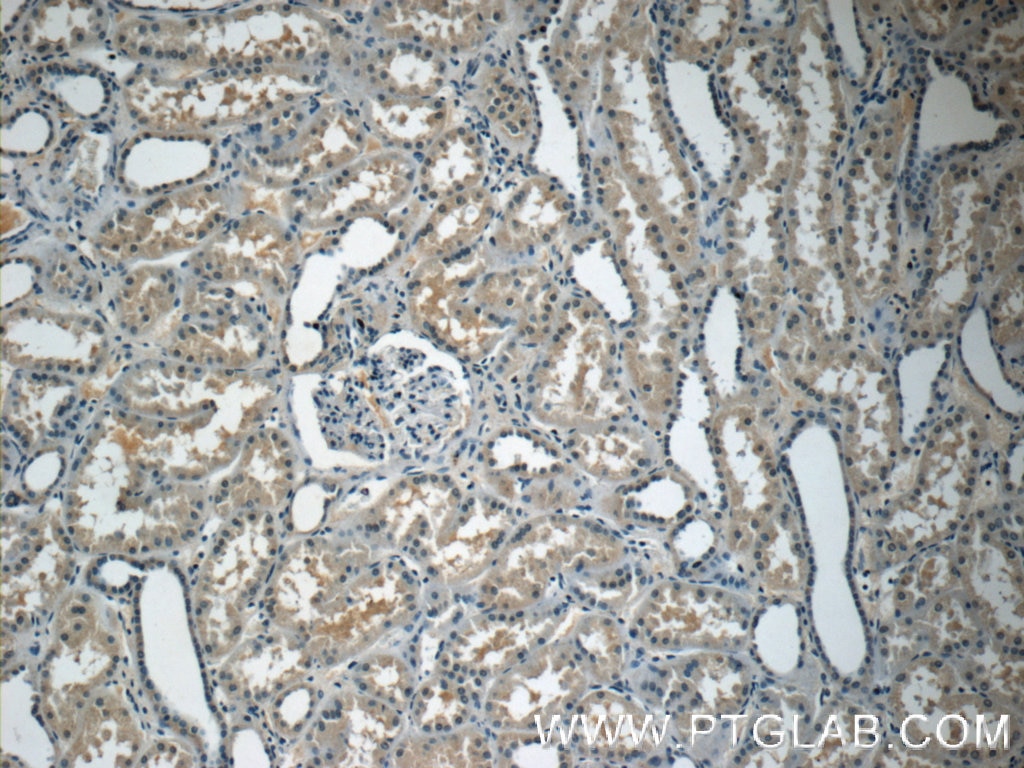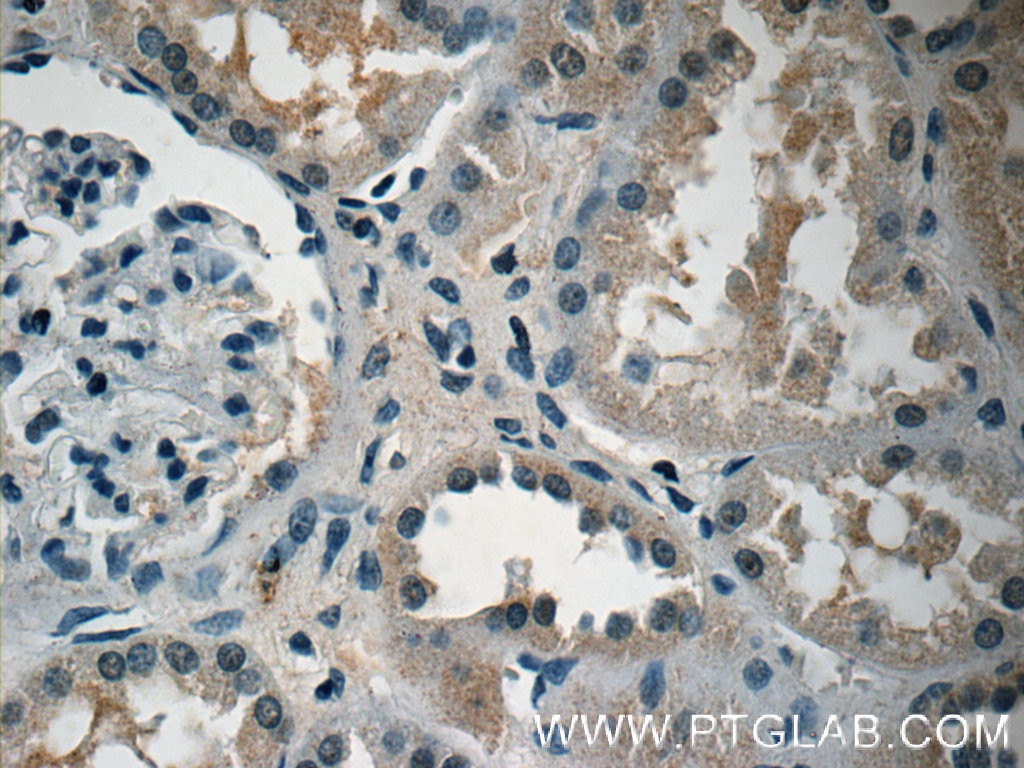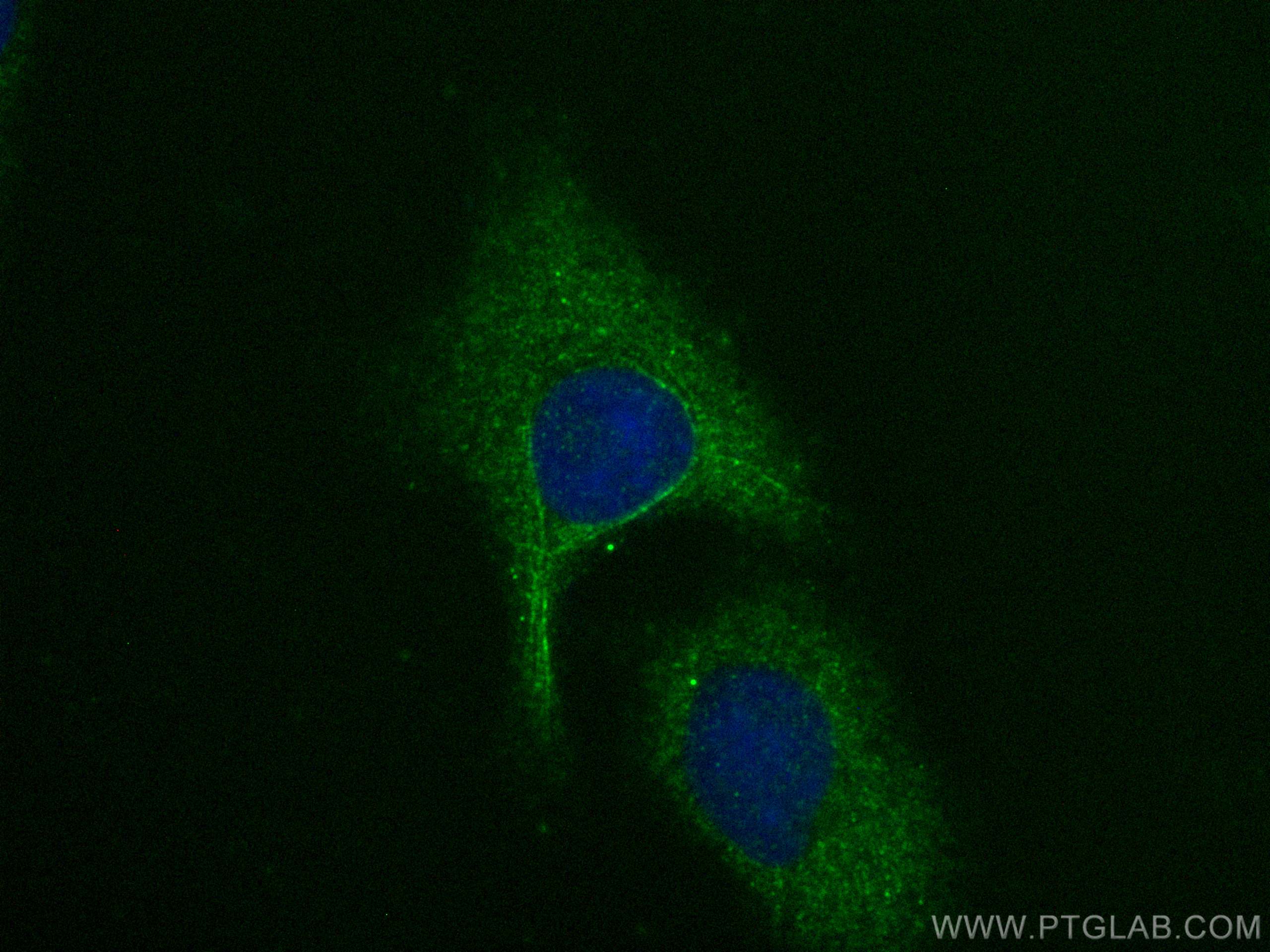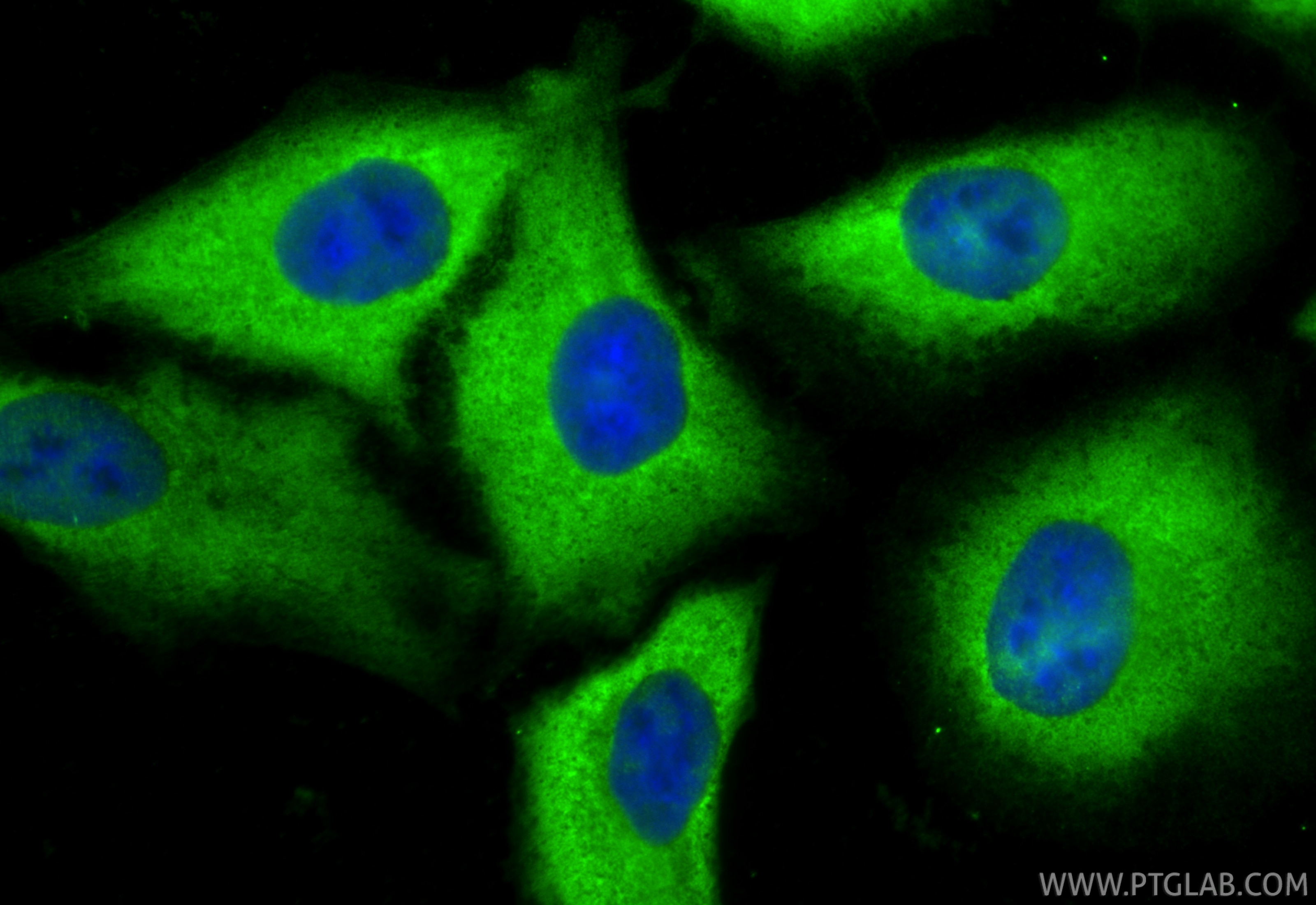Tested Applications
| Positive IHC detected in | human placenta tissue, human pancreas cancer tissue, human kidney tissue, mouse kidney tissue Note: suggested antigen retrieval with TE buffer pH 9.0; (*) Alternatively, antigen retrieval may be performed with citrate buffer pH 6.0 |
| Positive IF/ICC detected in | A549 cells |
Recommended dilution
| Application | Dilution |
|---|---|
| Immunohistochemistry (IHC) | IHC : 1:50-1:500 |
| Immunofluorescence (IF)/ICC | IF/ICC : 1:200-1:800 |
| It is recommended that this reagent should be titrated in each testing system to obtain optimal results. | |
| Sample-dependent, Check data in validation data gallery. | |
Published Applications
| KD/KO | See 1 publications below |
| WB | See 3 publications below |
| IHC | See 4 publications below |
| IF | See 4 publications below |
| IP | See 1 publications below |
Product Information
10778-1-AP targets Adrenomedullin in WB, IHC, IF/ICC, IP, ELISA applications and shows reactivity with human, mouse samples.
| Tested Reactivity | human, mouse |
| Cited Reactivity | human, mouse |
| Host / Isotype | Rabbit / IgG |
| Class | Polyclonal |
| Type | Antibody |
| Immunogen |
CatNo: Ag1197 Product name: Recombinant human ADM protein Source: e coli.-derived, PGEX-4T Tag: GST Domain: 1-185 aa of BC015961 Sequence: MKLVSVALMYLGSLAFLGADTARLDVASEFRKKWNKWALSRGKRELRMSSSYPTGLADVKAGPAQTLIRPQDMKGASRSPEDSSPDAARIRVKRYRQSMNNFQGLRSFGCRFGTCTVQKLAHQIYQFTDKDKDNVAPRSKISPQGYGRRRRRSLPEAGPGRTLVSSKPQAHGAPAPPSGSAPHFL Predict reactive species |
| Full Name | adrenomedullin |
| Calculated Molecular Weight | 20 kDa |
| GenBank Accession Number | BC015961 |
| Gene Symbol | Adrenomedullin/ADM |
| Gene ID (NCBI) | 133 |
| RRID | AB_2242255 |
| Conjugate | Unconjugated |
| Form | Liquid |
| Purification Method | Antigen affinity purification |
| UNIPROT ID | P35318 |
| Storage Buffer | PBS with 0.02% sodium azide and 50% glycerol, pH 7.3. |
| Storage Conditions | Store at -20°C. Stable for one year after shipment. Aliquoting is unnecessary for -20oC storage. 20ul sizes contain 0.1% BSA. |
Background Information
Adrenomedullin (AM) and proadrenomedullin N-terminal 20 peptide (PAMP) are two small active hormones derived from the expression of a single gene (Adm) that is expressed throughout the GI tract, including the mucosal epithelium, glandular duct cells, neuroendocrine cells, and smooth muscle cells of the GI tract, between the oral cavity and the rectum (PMID:10782362, PMID:27345325). These two peptides coexist in GI cells, where they regulate many physiological functions including vasodilation, angiogenesis, anti-inflammation, organ protection, and tissue repair. AM suppresses inflammatory cytokine production in the intestinal mucosa, improves vascular and lymphatic function, mucosal epithelial repair, and intestinal barrier function in animal models with intestinal inflammation (PMID:27965594, PMID:29311984). Molecular mass species of 18, 14, and 6 kDa were identified in tumor cell lysates and presumably represent AM precursor, processed intermediates, and the authentic peptide, respectively. There is also a 22-kDa immunoreactive species in two cancer cell lines, H720 and MCF-7 (PMID: 8798536).
Protocols
| Product Specific Protocols | |
|---|---|
| IF protocol for Adrenomedullin antibody 10778-1-AP | Download protocol |
| IHC protocol for Adrenomedullin antibody 10778-1-AP | Download protocol |
| Standard Protocols | |
|---|---|
| Click here to view our Standard Protocols |
Publications
| Species | Application | Title |
|---|---|---|
Neuron METTL14 integrates tumor-derived SAM to drive parabrachial epigenetic rewiring in pancreatic cancer | ||
Front Immunol Unraveling the role of GPCR signaling in metabolic reprogramming and immune microenvironment of lung adenocarcinoma: a multi-omics study with experimental validation | ||
J Cell Mol Med Adrenomedullin Inhibits the Efficacy of Combined Immunotherapy and Targeted Therapy in Biliary Tract Cancer by Disrupting Endothelial Cell Functions
| ||
Cells Differentiation Trajectory of Limbal Stem and Progenitor Cells under Normal Homeostasis and upon Corneal Wounding. | ||
Cell Biosci Single-cell multi-omics analysis reveals candidate therapeutic drugs and key transcription factor specifically for the mesenchymal subtype of glioblastoma | ||
CNS Neurosci Ther Identification and validation of a glycolysis-related taxonomy for improving outcomes in glioma |

